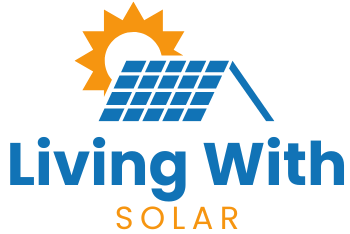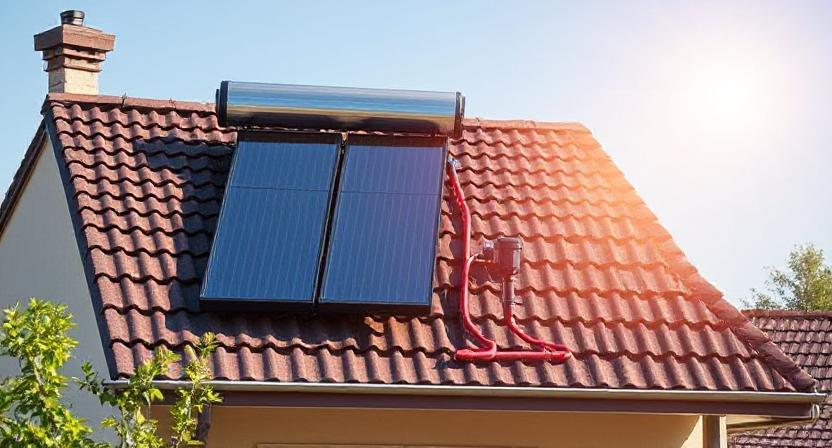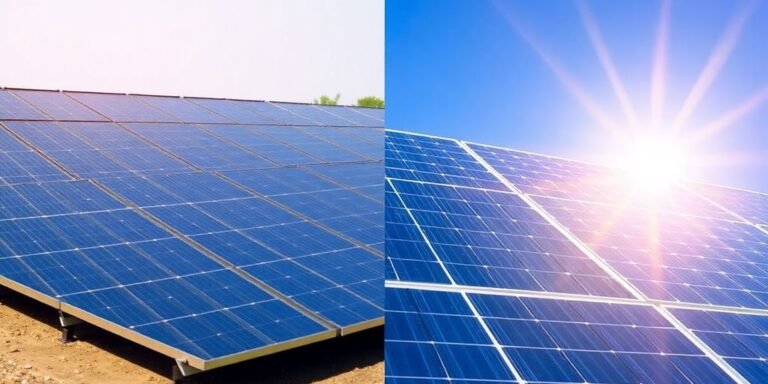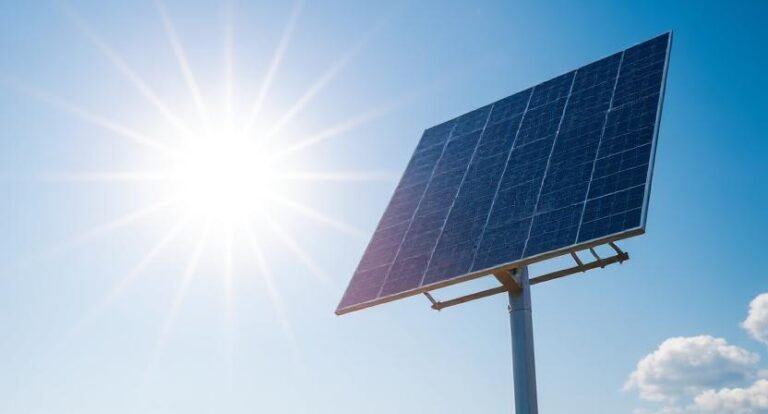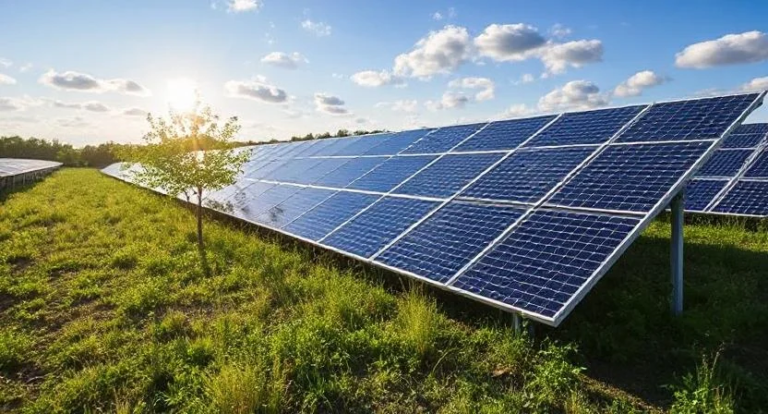If you’re looking to reduce your energy bills and make your home more sustainable, consider the role of solar water heaters. Imagine a system that utilizes the sun’s abundant energy to provide hot water for your daily needs. Not only does it offer cost savings and a reliable hot water supply, but it also aligns with eco-conscious practices. As you explore the benefits and considerations of incorporating solar water heaters into your home, you’ll discover a world of possibilities that can transform your household’s energy efficiency and environmental impact.
Solar Solutions for Businesses
Explore how solar power can reduce operational costs for your business.
🔗 Discover More
Key Takeaways
- Reduce energy bills by harnessing sunlight for hot water.
- Environmentally friendly choice with lower carbon emissions.
- Long-term investment with increased property value.
- Low maintenance and durable heating solution.
- Sustainability through renewable energy use in residential settings.
Advantages of Solar Water Heaters
Looking to save money on your energy bills and reduce your carbon footprint? Solar water heaters offer a fantastic solution.
By harnessing the power of the sun to heat your water, you can significantly lower your energy expenses while also decreasing your environmental impact.
Solar water heaters are incredibly energy-efficient, utilizing renewable energy to heat water for your household needs.
This means less reliance on traditional energy sources, leading to reduced electricity or gas bills.
Additionally, by switching to a solar water heater, you’re actively contributing to the fight against climate change by decreasing your carbon emissions.
Another advantage of solar water heaters is their long-term cost-effectiveness. While the initial investment may seem significant, the savings on your energy bills over time will more than make up for it.
With proper maintenance, solar water heaters are durable and can provide hot water for many years to come. Embracing solar technology not only benefits your pocket but also the planet.
Types of Solar Water Heaters

To explore the various options available in the realm of solar water heaters, it’s essential to understand the different types that cater to diverse needs and preferences.
- Flat-Plate Collectors: These are the most common type of solar water heaters, consisting of an insulated box with a dark absorber plate to capture solar energy.
- Evacuated Tube Collectors: These systems use parallel rows of glass tubes that contain a heat pipe to efficiently transfer heat from sunlight to water.
- Integral Collector-Storage Systems: Also known as batch systems, these heaters feature a tank that’s directly exposed to sunlight, eliminating the need for separate storage tanks.
- Thermosyphon Systems: Operating on the principle of natural convection, these systems don’t require a pump to circulate water, making them simpler and more reliable.
Understanding the distinctions between these types can help you choose the most suitable solar water heater for your specific requirements.
How Solar Water Heaters Work
Solar water heaters harness the power of sunlight to provide an eco-friendly and cost-effective solution for heating water in residential and commercial settings.
These systems typically consist of solar collectors that absorb sunlight and convert it into usable heat, which is then transferred to the water stored in a tank for later use.
Here’s a breakdown of how solar water heaters work:
| Component | Function |
|---|---|
| Solar Collectors | Absorb sunlight and convert it into heat |
| Heat Transfer | Transfers heat from collectors to water |
| Storage Tank | Stores heated water for later use |
| Circulation Pump | Moves water between collectors and tank |
Installation of Solar Water Heaters
When considering the installation of solar water heaters, it’s important to understand the practical steps involved in setting up this sustainable heating solution.
Here are some key points to keep in mind:
- Location: Identify a spot with maximum sunlight exposure for optimal efficiency.
- Mounting: Ensure the solar panels are securely mounted on a stable surface, preferably facing south.
- Piping: Connect the solar collector to your existing water heating system using insulated pipes.
- Controller Installation: Set up the controller unit to regulate the temperature and flow of water efficiently.
Maintenance Tips for Solar Water Heaters
Maintaining your solar water heater is crucial for ensuring its longevity and efficiency. To keep your system running smoothly, there are some key maintenance tips to follow.
Regularly inspect the components for any signs of wear or damage, such as leaks or corrosion. Clean the solar panels at least twice a year to ensure optimal sunlight absorption.
Check the pipes and connections for any blockages or leaks that could affect the system’s performance.
Additionally, make sure the thermostat is set at the recommended temperature to prevent overheating or underperformance.
It is also essential to flush the system annually to remove any sediment buildup that can decrease efficiency.
Consider hiring a professional to perform a more thorough annual maintenance check to identify any potential issues before they escalate.
Cost Savings With Solar Water Heaters
Embracing solar water heaters can significantly reduce your household energy costs, offering substantial long-term savings while also contributing to a more sustainable environment.
Here are some ways solar water heaters can help you save money:
- Lower Utility Bills: By using the sun’s energy to heat your water, you can reduce your reliance on electricity or gas, leading to lower monthly utility bills.
- Long-Term Investment: While the initial cost of installing a solar water heater may seem high, the long-term savings on energy bills make it a cost-effective investment.
- Tax Incentives: Many governments offer tax incentives or rebates for installing solar water heaters, helping you save even more money in the process.
- Increased Home Value: A home equipped with a solar water heater is often more attractive to potential buyers, potentially increasing the resale value of your property.
Environmental Benefits of Solar Water Heaters

With solar water heaters, you can actively contribute to a cleaner environment by reducing your carbon footprint.
By harnessing energy from the sun to heat water for your home, you significantly decrease the need to rely on fossil fuels or electricity generated from nonrenewable sources.
This results in lower greenhouse gas emissions, helping combat climate change and air pollution.
Traditional water heating systems typically rely on natural gas or electricity, which release carbon dioxide and other pollutants into the atmosphere.
In contrast, solar water heaters operate using clean, renewable energy, making them a more environmentally friendly choice for your household.
Additionally, using solar water heaters can help conserve finite resources like natural gas and coal, which are commonly used to produce electricity for heating water.
By choosing a sustainable option like solar power, you’re reducing the demand for these limited resources, promoting a more sustainable future for generations to come.
Solar Water Heaters vs. Traditional Systems
To compare solar water heaters to traditional systems, you’ll see significant differences in how they operate and the benefits they offer.
Solar water heaters harness energy from the sun to heat water, while traditional systems rely on electricity or gas. Here are some key points to consider:
- Cost Savings: Solar water heaters have higher upfront costs but can lead to long-term savings on utility bills.
- Environmental Impact: Solar systems are eco-friendly, reducing carbon emissions and reliance on non-renewable resources.
- Reliability: Traditional systems may be more consistent in providing hot water, especially during cloudy days or at night.
- Maintenance: Solar heaters generally require less maintenance compared to traditional systems, which may need periodic repairs or replacements.
When weighing your options, consider your budget, environmental concerns, and the availability of sunlight in your area.
Both systems have their pros and cons, so choose the one that aligns best with your needs and values.
Future of Solar Water Heaters
Solar water heaters are poised to revolutionize the way we heat water in the future. As technology advances and environmental concerns grow, solar water heaters are becoming increasingly popular for their energy efficiency and eco-friendliness. Here’s a glimpse into the exciting future of solar water heaters:
| Advantages | Challenges |
|---|---|
| 1. Renewable energy source | 1. Initial installation cost |
| 2. Reduced energy bills | 2. Dependence on sunlight |
| 3. Low maintenance | 3. Efficiency in cold climates |
| 4. Environmentally friendly | 4. Storage limitations |
Innovations in solar water heating technology are addressing these challenges, making solar water heaters more accessible and efficient for all households.
Future developments aim to improve energy storage capabilities, increase efficiency in varying climates, and reduce installation costs.
With ongoing research and advancements, solar water heaters are set to play a significant role in sustainable living and reducing carbon footprints.
Embracing solar water heaters in your home can lead to long-term cost savings and a greener future.
Conclusion
Overall, incorporating a solar water heater into your home is a smart choice for energy savings, reliability, and sustainability. With lower utility bills, reduced carbon emissions, and a reliable source of hot water, you can enjoy the benefits of a more eco-friendly lifestyle. By choosing a solar water heater, you are not only investing in your own savings but also contributing to a greener future for our planet. Make the switch today and start reaping the rewards of solar energy.
Frequently Asked Questions
How Do Solar Water Heaters Perform During Extreme Weather Conditions?
During extreme weather conditions, solar water heaters perform efficiently by utilizing backup systems to ensure consistent hot water supply. They can withstand various climates, providing reliable heating even in challenging weather situations.
Are There Any Government Incentives or Rebates for Installing Solar Water Heaters?
You’ll find various government incentives and rebates for installing solar water heaters. These financial benefits help offset the upfront costs and make transitioning to eco-friendly energy sources more affordable for homeowners like you.
Can Solar Water Heaters Be Integrated With Existing Plumbing Systems?
Yes, solar water heaters can be integrated with existing plumbing systems. They work alongside traditional water heaters, using solar energy to preheat water before it enters your regular water heating system, reducing energy costs.
Do Solar Water Heaters Require a Backup System During Cloudy Days?
During cloudy days, solar water heaters may need a backup system to ensure hot water availability. This backup can be a traditional water heater or a supplemental heating source to maintain a consistent supply of hot water.
What Is the Average Lifespan of a Solar Water Heater System?
On average, a solar water heater system lasts about 20-30 years. Regular maintenance can extend its lifespan. Consider factors like weather conditions and usage patterns to ensure your system operates efficiently for years to come.
